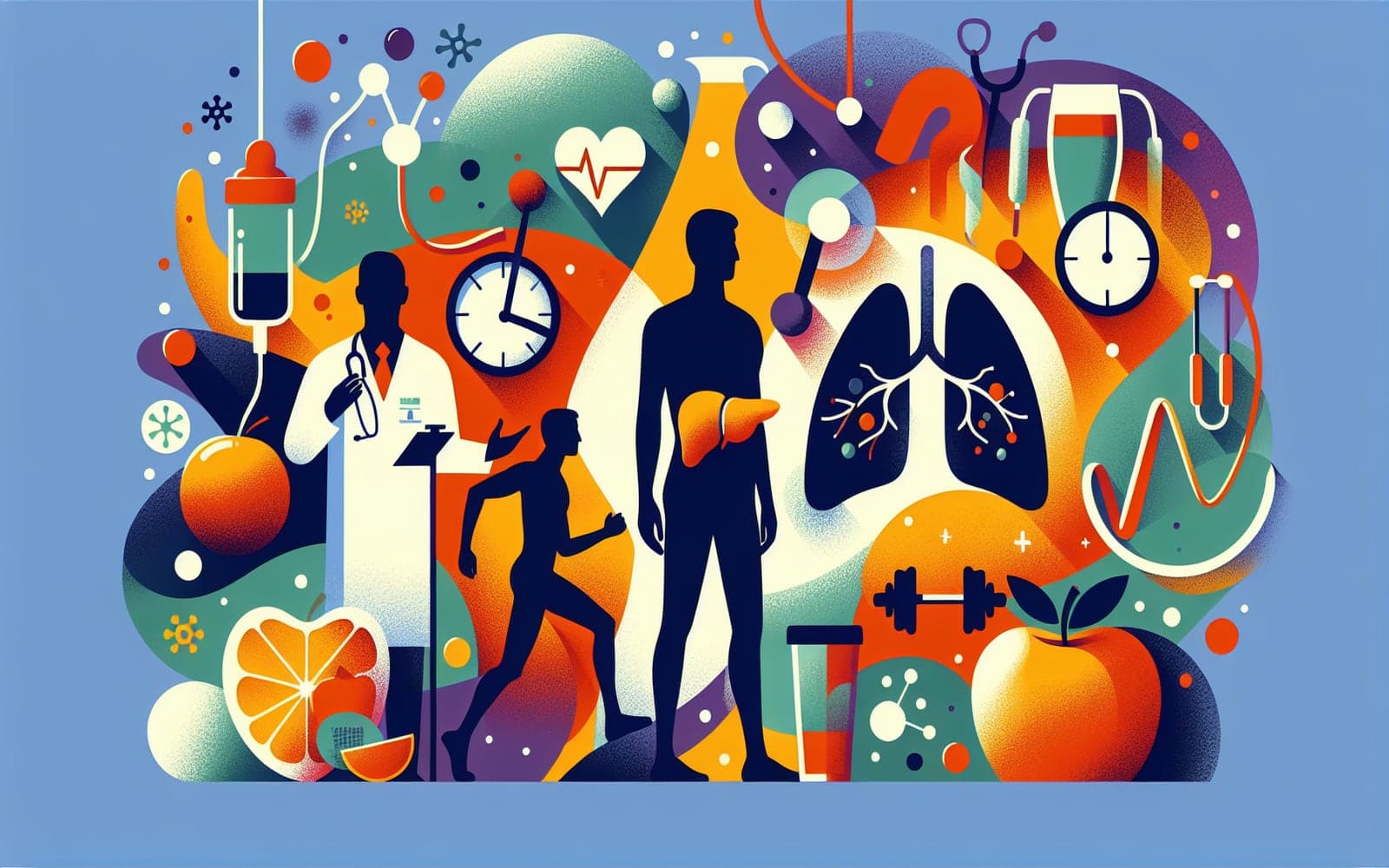Contents
-
The Power of Lifestyle Changes
-
Medications: Targeting Specific Liver Problems
-
Emerging Therapies: The Cutting Edge
-
When All Else Fails: Liver Transplantation
Healing Your Liver: From Lifestyle Changes to Cutting-Edge Treatments
Healing Your Liver: From Lifestyle Changes to Cutting-Edge Treatments
The Road to Recovery
When it comes to liver health, there's good news: many liver conditions can improve with the right approach. From simple lifestyle tweaks to advanced medical therapies, options exist for supporting and healing your liver.
Contents
-
The Power of Lifestyle Changes
-
Medications: Targeting Specific Liver Problems
-
Emerging Therapies: The Cutting Edge
-
When All Else Fails: Liver Transplantation
The Power of Lifestyle Changes
For many liver conditions, lifestyle modifications are the first line of defense. Reducing or eliminating alcohol consumption can have dramatic effects on liver health. Adopting a balanced diet rich in fruits, vegetables, and whole grains while limiting processed foods and added sugars can help reduce fat buildup in the liver. Regular exercise not only aids weight loss but also improves liver function directly.
Medications: Targeting Specific Liver Problems
Various medications can treat liver diseases, depending on the underlying cause. Antiviral drugs can effectively manage hepatitis B and cure hepatitis C in many cases. For autoimmune liver diseases, immunosuppressants may be used to reduce inflammation. In cases of non-alcoholic fatty liver disease, some medications can help improve insulin sensitivity and reduce liver fat.
Emerging Therapies: The Cutting Edge
Research into liver treatments is advancing rapidly. Stem cell therapies show promise for regenerating damaged liver tissue. Gene editing techniques are being explored to correct inherited liver disorders. For advanced liver disease, bioartificial liver support systems can temporarily take over liver functions, buying time for the organ to heal or for a transplant to become available.
When All Else Fails: Liver Transplantation
For end-stage liver disease or acute liver failure, transplantation may be the best option. This complex surgery replaces a diseased liver with a healthy one from a donor. While challenging, liver transplants have high success rates, offering a new lease on life for those with severe liver damage.
FAQs
Can liver damage be reversed?
Often yes, especially if caught early and the underlying cause is addressed.
Are there 'liver cleanse' diets that work?
Most 'cleanses' aren't scientifically proven; focus on overall healthy eating instead.
How long does it take for the liver to heal?
It varies widely, from weeks to months, depending on the type and extent of damage.
Can supplements help heal the liver?
Some may help, but always consult a doctor before taking any supplements.
Hope on the Horizon
With a range of treatments available and new ones on the horizon, there's real hope for those facing liver health challenges.
Additional References
-
Newsome PN, Cramb R, Davison SM, et al. Guidelines on the management of abnormal liver blood tests. Gut 2018; 67:6.
-
Church RJ, Kullak-Ublick GA, Aubrecht J, et al. Candidate biomarkers for the diagnosis and prognosis of drug-induced liver injury: An international collaborative effort. Hepatology 2019; 69:760.
-
Vítek L. Bilirubin as a signaling molecule. Med Res Rev 2020; 40:1335.
This article has been reviewed for accuracy by one of the licensed medical doctors working for Doctronic.












